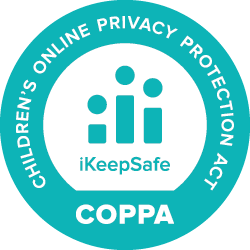Live Event: April 25, 2019 at 1:00pm Eastern (US)
Molly Curran is an Engineer at Woods Hole Oceanographic Institution where she designs deep sea vehicles and cutting edge technology to explore the ocean. She uses engineering, math, and technological skills to help scientists access the unexplored and hard to reach areas of our planet.
About Molly
Name: Molly Curran
Title: Mechanical Engineer in the Deep Submergence Lab
Layman’s Title: Engineer
Company: Woods Hole Oceanographic Institution
Years in this organization/position?
I have been an engineer at WHOI for almost 4 years now.
What does your organization do?
Woods Hole Oceanographic Institution is the world’s leading, independent non-profit organization dedicated to ocean research, exploration, and education. Our mission is to advance the knowledge of the ocean and how it interacts with the rest of the world through cutting edge technology and deep ocean exploration.
What is your role in the organization?
My role as an engineer in the Deep Submergence Lab includes mechanical design and integration of deep sea vehicles and systems as well as in field operation and maintenance of the vehicles and systems.
Describe your work and how it is important to society:
On a day to day basis my work involves mechanical design for deep sea vehicles and systems. This is encompassing everything from coming up with an idea and creating mechanical models and technical drawings. After the design is complete, we will them oversee fabrication and do bench testing once the parts are received. Lastly, I will go in to the field to operate the system and do any at sea repairs that may be needed. Ocean research is so important to our society because the state of our oceans is quite literally the future of our planet. There is still no much we don’t know about this last frontier and how closely it is tied to the Earth’s atmosphere. Through my work I help scientist access these unexplored and nearly impossible to reach areas of our planet.
What type of science, technology, engineering or math do you use in your career? And how often do you use them?
On a daily basis I use a combination of engineering, math, and technological skills and am continually learning new scientific topics as it relates to our work or expeditions. Before anything is design it is critical that we perform strategic calculations to ensure safety and success.
What accomplishments are you most proud of in your current role?
While working at WHOI I have been a part of the development of several new robotic vehicles. This is extremely exciting as you watch the vehicle grow from an idea to a fully populated vehicle. At this point in my career I am proud of the skills I have been able to advance including operational abilities, design expertise, and overall knowledge of oceanographic work. I think back to 4 years ago to what I knew when I first started compared to what I know now.
What projects or goals are you currently pursuing?
I am currently working on several new deep sea vehicles while preparing an existing vehicle for a cruise in the Arctic. One of the vehicles, Orpheus, was created in collaboration with NASA’s Jet Propulsion Laboratory and designed to withstand the pressure of the deepest part of our Earth’s ocean. The other vehicle, Mesobot, is designed to tell us more about the twilight zone, an area of the ocean which we think may have incredible potential and possible answers to global warming. I am proud to say I contributed to the ideas, designs, and initial testing for these vehicle that may one day make unconceivable discoveries.
What are the biggest challenges you face in your work?
The biggest challenge I face at this point in my career is balancing engineering design time with operational ship time. I really enjoy going to sea and expanding my deck, hands on, and operation skill, but I know that it is also important for my career to push forward with new innovative designs. I really enjoy a mix of both, but finding that perfect mix can be tricky!
What is the most exciting, most amazing, or scariest thing that has happened to you during your work?
Through spending a lot of time performing vehicle operations at sea I have been in some pretty crazy storms. During my first cruise, off the coast of South Carolina looking for deep sea coral, Hurricane Harmine hit the East coast and we found ourselves running furiously from the storm. About half way through our retreat, one of the ships engines broke and so we were unable to escape at the storm at the rate we had hoped. We experience 30+ foots seas and incredible winds, but made it out okay.
Highest degree attained/ Schools attended?
I got my high school degree at North Pocono in Moscow Pennsylvania. I received my BS in Mechanical Engineering with a minor in Ocean Engineering from the University of New Hampshire.
What educational accomplishments are you most proud of?
About halfway through my BS in Mechanical Engineering I chose to pursue a minor in Ocean Engineering. This was one of the best decision I’ve made as it led me to Woods Hole Oceanographic Institution.
What kinds of challenges did you overcome during your education?
During my college career I was 1 of less than 10 females in a class of ~130 males. This did not bother me much as I grew up with a brother and his friends and many of the sports I did were primarily guys. Engineering in general is a challenging degree and it was difficult to balance school, a social life, and club ski racing.
Previous employers and positions that have lead to your current role:
WHOI was my first job out of college.
Other positions not necessarily related to your current career:
I grew up working at a boat dock which just amplified my love for being on the water.
Best job you’ve ever had and why:
The best job Ive ever had is the job I am currently at. It challenges me, allows me to travel the world, and most of all I am doing something I am passionate about while helping push the leading edge of technology and ocean research.
What were you like as a kid?
As a kid I was a huge tom-boy while also being involved in dancing and gymnastics and girl scouts. In my very young years I played just about every sport imaginable and had absolutely no fear of competing against the boys. During high school I began to focus on ski racing and jetski racing, volleyball, and track. I was very social and athletic, yet also a huge nerd.
Favorite classes/coursework in elementary school, middle school, high school, college:
My favorite classes in grade school were always math and science. I also loved art, although I was by no means an artist. In college I loved my ocean engineering courses.
What were your favorite books/shows/movies when you were a kid?
I enjoyed all the classic movies as a kid – Lord of the Rings, Harry Potter. I didn’t want a ton of TV. I preferred playing outside or hanging out in the barn with our animals.
What did you think you were going to be when you grew up at age 12? At age 15? At age 18?
When I was 12 I wanted to be a vet. I loved (and still love) animals. By age 15 I wanted to be a professional ski racer. My racing career was really taking off and skiing became my life. By age 18 reality that I could not be a professional skier set in and I went to school for engineering.
When did you know you wanted to pursue your current career, and what drove you towards it?
I grew up with a family of engineers, so I was always seeing what cool projects they were working on and fun designs they were scheming. I saw the opportunity to be hands on, creative, and capable of nearly anything. I was always asking questions of how things worked and how we could fix them ourselves or make something new. This pointed in the direction of engineer. As far as the ocean side of it, I actually grew up in land locked Pennsylvania. But there was no lack of water in my life. With my family racing jetskis, we would travel the country to race nearly every weekend in the summer. Our house was on a large piece of property with a small lake in the middle, which we tried to explore every inch of via quads, jetskis, bikes, and paddleboats. Then throughout most of high school I worked at a marina at a local lake.
If you weren’t doing what you’re doing now, what other career(s) might you have pursued?
If I did not get a degree in engineering I would like to say I would still be doing something in and around the oceans and a career with a purpose – something to better the world. I’ve also been really interested in architecture. Sometimes I dream of becoming a wood worker when I retire.
What are your favorite hobbies or activities you do for fun?
I grew up down hill ski racing and continue to free ski whenever I have the opportunity to get to the mountains. I enjoy being outside and hiking, camping, boating, wake surfing, and wake boarding. My family and I race standup jet skis in the summer and just love being on the water.
Do you play any musical instruments or play any sports?
I love pickup sports like softball, volleyball and soccer and will occasionally get to the pool to swim or rock gym to climb. I grew up playing piano and flute but no longer play. I aspire to play guitar.
What is your favorite non-science book, magazine, or blog?
I really enjoying cooking reads! In my spare time I try to become a better cook.
What’s the most frequently played song?
My taste of music changes with the season, environment, mood, weather. I like everything from classic rock to country.
Who do you look up to and admire?
There are a lot of people in my life I admire and look up to. My top 3 are my mother, father, and brother. They mean the world to me and I am who I am and where I am because of them. I also look up to a lot of athletes and professional oceanographers, adventurers, and explorers. I grew up admiring Lindsey Vonn with my passion for ski racing and well as a lot of Region 8 female jetski racers. Ive become fascinated with following the adventures of certain explorers including many national geographic photographers. I admire those who have made strides in the oceanographic world, including both historic figures and people who work down the hall from me.
What advice would you give a student interested in pursuing your career?
To students interested in engineering I will say first of all, it is not easy. It is a lot of hard work but is the most fulfilling work I could ever ask for. Engineering school was extremely challenging and I often find myself facing perplexing problems throughout my work, but when I am on a research vessel in the middle of the ocean off the coast of New Zealand deploying a deep sea robot to explore underwater volcanoes, I think to myself, it was all worth it.
What advice would you give students in general?
The older I get, more I realize we, as human beings, are only given so many opportunities, and who we become depends on how we react to these opportunities. In high school and college, you are given one of the greatest opportunities in life – the opportunity to learn. To expand your knowledge, to grow intellectually. I think when I was younger I may have taken advantage of this slightly, not realizing how many possibilities I could have by making the best of this opportunity to learn. I would tell students to cherish these opportunities to learn and squeeze every last bit of information out of it. Those 4 years of high school may in fact determine what path you take and where you will end up in 25 years, so put the effort in to make the best of it. It may not be the easiest path, but I will guarantee you will look back and say it was worth it.
What are some interesting places you’ve traveled?
Through work I’ve been lucky enough to travel to Mexico, Chile, Costa Rica, Canada, New Zealand, and all around the United States. Interesting science exists all around our world, giving me and my team the opportunity to visit a vast number of locations and work in all sorts of environments. This upcoming year I will be doing work off the coast of Alaska, Oregon, and above the Arctic Circle. Through both work and personal trips Ive visited 19 different countries, and plan to see many more. I studied abroad in Budapest Hungary and it was 4 of the best months of my life. I believe travel is an important aspect of life that allows a human to see the world through different perspectives.


